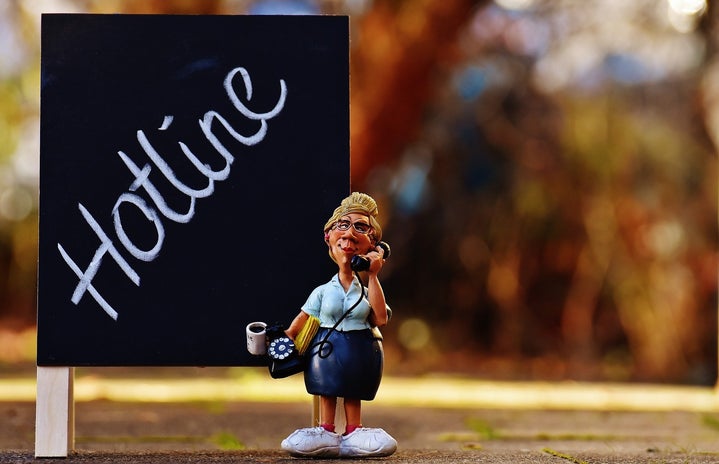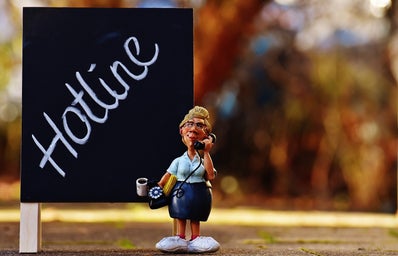Please note that this information does not replace professional legal advice. We encourage you to speak with an attorney before acting upon any of the information given.
Although the legal drinking age in Michigan is 21, alcohol has somehow become as habitual to some underage students as avoiding the M on the diag. But no matter how much underage drinking is normalized, it’s still illegal, and you could face severe consequences if you’re not careful. Obviously the safest choice is just to wait to drink until you’re 21, but for some people that’s just never gonna happen. So before you head out for your next Tina Tuesday, or wake up for your 7 AM round of game day shots, make sure you brush up on your rights!
Don’t Get an MIP
According to the American Civil Liberties Union of Michigan, “M.I.P. stands for ‘minor in possession’ of alcohol. If you are under the age of 21, it is illegal to consume or possess any amount of alcohol in Michigan.” An M.I.P. can be expunged from your record if you do everything the judge tells you to do, but if you get a second or third M.I.P. then you can be in serious legal trouble.
If You’re Not Driving, You Never Have to Take A Breathalyzer
If an officer tells you to take a breath test, do you have to take it? “You do not,” says Doraid Elder, a criminal defense attorney in Dearborn, Michigan. “We have a constitutional right to be free from any illegal search and seizures. If you’re walking down the street they can’t force you to take a breathalyzer, and they can’t force you to take field sobriety tests.”
The ACLU of Michigan elaborates on this, stating, “Usually the police cannot search you unless they first get a judge to sign an order called a search warrant. Since a breathalyzer is a bodily search, the police can’t force you to take one without a search warrant. Also, the police usually can’t give you a ticket, arrest you, or detain you for refusing to take the breathalyzer test.” That means that no matter how drunk you are stumbling to the stadium, if an officer tells you to take a breathalyzer, you can say, “No, thank you.”
However, if a police officer has reasonable suspicion to believe you have consumed alcohol, the officer may require you to take breath test. If you refuse to take this test, they can charge you with a civil infraction of no more than $100 (similar to a parking ticket). In this case, Elder says you should still decline to take the breathalyzer test. Getting cited with a civil infraction is way better than getting charged with an M.I.P.! Basically, if you’ve been drinking, you should never, ever consent to a breathalyzer test.
(Note that this only applies when you’re walking! Elder says, “Under Michigan law, if you’re driving a vehicle, and you don’t submit to a breath test, they can suspend your license because there’s a law that says that because we’re giving you a driver’s license, it’s implied that you’ve consented to a breath test.” So just don’t drink and drive…ever).
If You Don’t Take The Breath Test, You Don’t Get the M.I.P.! (Usually)
Elder says, “They can try [to charge you with an M.I.P. without a breathalyzer test], but ultimately they’d have to prove your blood alcohol content.” Basically, it’s not illegal to smell like alcohol, slur your words, or stumble. What’s illegal is to have alcohol in your system (or to purchase or possess alcohol), and unless they can prove that you do, they can’t arrest you. That doesn’t mean you should go running around drunk in public, though! If you’re too wild, you could get charged with disorderly conduct or public urination, among a myriad of other things.
If an Officer Talks To You While You’re Drunk, Go Mute
According to Elder, “Whenever you’re involved in illegal conduct or in custody, you have the right to remain silent. If they ask for ID, you don’t have to provide ID (however, depending on what city you’re in, there may be a city ordinance that allows officers to “stop & ID” people on the street). If you have a fake ID, do not give them your fake ID, as that’s a criminal offense, which is much worse than any fines you can get for refusing to give ID. The minute they smell alcohol on your breath, that’s reasonable suspicion that you’re involved in illegal conduct, so they can do what we call a ‘terry stop’, basically just an inspection.”
Flex Your Rights, a nonprofit that seeks to educate citizens on their police rights, explains that “police need reasonable suspicion to detain you. So one way to tell if they have reasonable suspicion is to determine if you’re free to go. You can do this by saying ‘Excuse me officer. Are you detaining me, or am I free to go?’ If the officer says you’re free to go, leave immediately and don’t answer any more questions.”
Even if you are being arrested or detained, you still have the right to remain silent. If the officer says that you’re not free to go, you should say, “Then I will not be speaking without an attorney present.” Remember that any little thing you say can be used against you in court, so don’t answer any questions, even if you don’t think what you’re saying is incriminating.
Imagine you’re leaving a party that was just shut down and you’re super drunk. Elder says, “If the officer says, ‘Hey, I want to make sure you’re okay, come over here, I want to talk to you’, you should say ‘Officer, thank you very much for your concern, I’m fine, I’d like to continue on my path.’”
Drinking Is Still Not Legal On Private Property
What if you’re drinking on private property, like at a party or a tailgate? Flex Your Rights states that “the Supreme Court has ruled that the home is entitled to maximum search protection. Even if they have probable cause to believe something illegal is going on inside your home, the 4th Amendment requires police to get a signed search warrant from a judge to legally enter and search.” So, unless they have your consent or exigent circumstances, they’re not coming in! (If they come with a noise complaint or something, just crack the door open to talk to them so they can’t see inside, because if they see something illegal and it’s exigent, then they’re allowed in.)
Elder explains that being on private property doesn’t prevent you from getting an M.I.P., however: “Now the question is whether or not the officer can go onto private property without a search warrant. If you’re holding a beer, then the officer might say there is something illegal going on and they can try to make in arrest. If you’re holding dixie cups, then you’re whole thing is gonna be ‘How do they know it’s alcohol if I’m on private property?’”
Here’s the trick: Elder says that the police may “knock on the door and look through the windows and they see what’s going on.” That’s because they’re allowed on the lawn unless it’s gated. (Or, for example, blocked with tarps.) In the case that the police do suspect something, remember: you don’t have to talk to them and you don’t have to submit to a breath test.
(Note that dorm rooms are not exactly private property, and so the laws apply slightly differently there).
If You Need an IV, Go to the Hospital!!
Drinking can be dangerous, and your safety should be the #1 priority. That’s why medical amnesty laws were created. The law states that “people under 21 will be exempt from prosecution if they voluntarily present themselves or initiate contact with law enforcement or medical services for the purpose of obtaining medical assistance for an alcohol or prescription drug overdose.” This means you must call 911 and claim medical amnesty for your friend, and neither you nor this friend will get charged with an M.I.P.!
What Happens In Canada, Stays In Canada
Lots of us love to take trips to Canada, where the drinking age is 19, or Wisconsin, where the drinking age is 18 if you’re with a parent or legal guardian. But what if you’re still a little lit when you get back?
“There’s a new law that includes provisions for minors who legally consume alcohol in Wisconsin or Canada to offer this as an affirmative defense in criminal prosecution,” Elder says. “If the user can prove in a court of law that she consumed alcohol in a venue or location where that consumption is legal, then the charge will be dropped.” Basically, the officers can still charge you with an M.I.P., but you can argue it in court if you can prove that every shot you took was in Canada. This is difficult, though, because how the heck do you prove every drink you had was legal? Overall, if you drink in Canada, try your best to plan the trip so you can be sober in time for the ride home (and definitely be sober if you’re driving).
Know Your Rights
If any of this is confusing to you, take a few minutes to do some research. Flex Your Rights is a comprehensive website with information on how citizens can interact with the police. The ACLU is a great resource too, and they even have a printable wallet card you can carry around that lists some of your rights. Our constitution provides us with lots of freedoms, but they’re useless if we don’t know how to assert them.
Photos courtesy Steph Harris, Unsplash, Emily Munch


